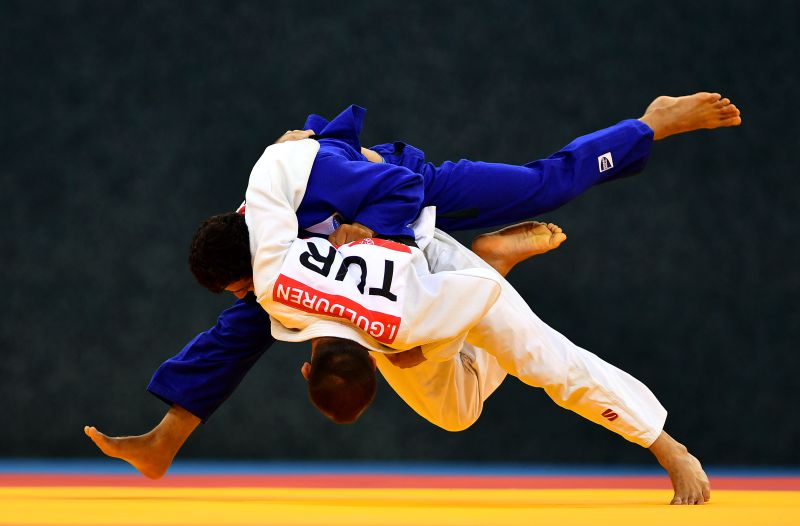Gold-medal project: Judo seeks solutions in police training
DOUGLAS, Wyo. (AP) – The stakes were clear to the two dozen police officers who gathered for a workshop with an ambitious and increasingly urgent mission – recalibrating the way police interact with the public in America. The class took place the same week as jury selection for the trial of Derek Chauvin, the former Minneapolis officer. He was convicted Tuesday of second-degree unintentional murder, third-degree murder, and second-degree manslaughter in the death of George Floyd.
No one attending the conference would deny that the profession failed when Floyd died with Chauvin’s knee on his neck. They came to the classes with the idea that judo, the martial art with a deep global history and an imprint at the Olympics, but still shallow roots in the United States, might be able to help fix it.
“The social contract between police officers and the public is degrading a bit,” said Joe Yungwirth, a trainer at the workshop who built his career doing counterterrorism work for the FBI and now runs a judo academy in North Carolina. “All law-enforcement officers I know, we need to bring that back in line somehow.”
That’s been a common refrain over a year’s worth of police shootings and protests, all of which have been underscored by calls for police reform.

The judo project is, by any account, an outside-the-box idea. Because the sport, known by insiders as “the gentle way” of martial arts, has little emphasis on striking and is considered less violent than some of its brethren, some leaders in judo and policing saw an opportunity to use the discipline to rethink officer training. Last summer’s headlines pushed these courses, which had been in development since 2018, to the top of the priority list.
The central concept over the week of classes held at the Wyoming Law Enforcement Academy centered on teaching cops how to engage suspects verbally, then employ physical judo techniques, if needed, to de-escalate confrontations without using deadly force.
The goal is to avoid situations that led to Floyd’s death and, just last week, to the end of Daunte Wright, whose funeral was Thursday. Wright was shot and killed by an officer who thought she was reaching for her taser when it was, in fact, her gun.
Jim Bacon, a former athlete on the U.S. judo team who now serves as a police officer in Lafayette, Colorado, says the most damning police-on-suspect encounters – many now caught on police body cameras or by onlookers holding iPhones – have this in common: “The cop resorts to higher levels of force than should’ve been used. If they have more skills, they might not have to rely on the gadgets on the belt,” he said.




